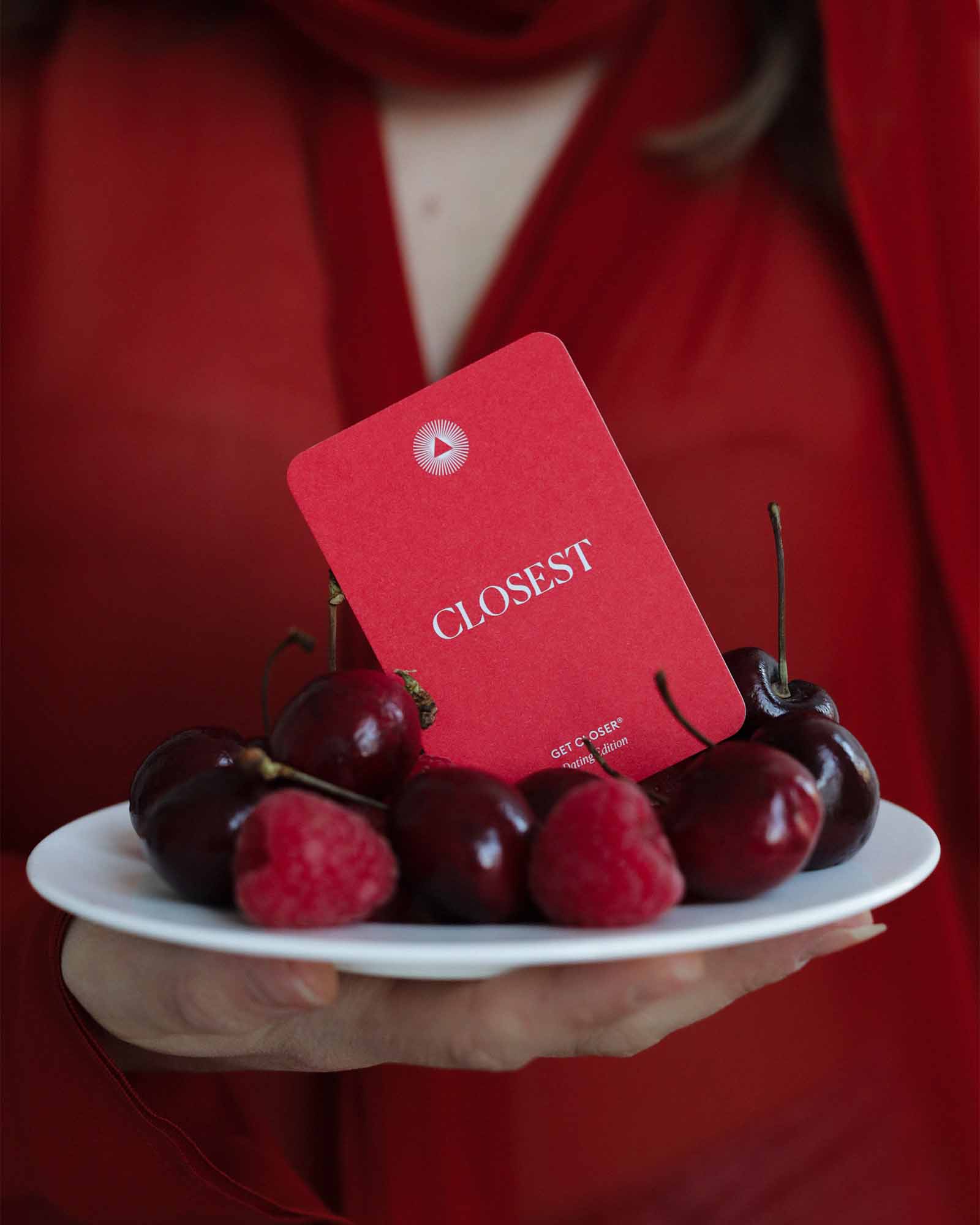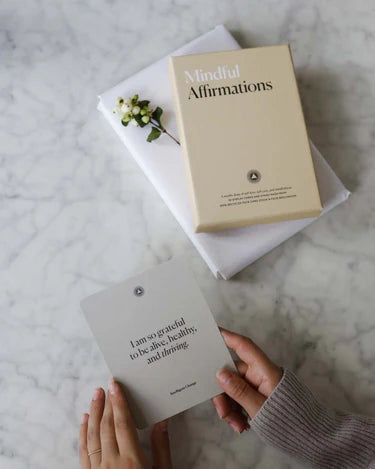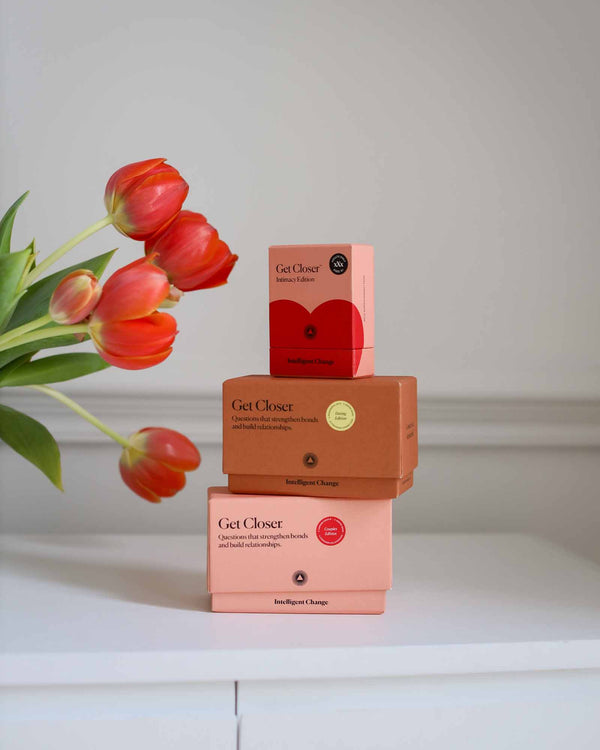Discovering the Key to True Romance
by Natalie Theodosi
From as early as our childhood years, we are told stories about romance from the books we read, the movies we watch, or the advertisements we are a target for. It usually involves a young boy pursuing a girl and, after overcoming some initial hurdles, they get together and "live happily after."
By now we've discovered that romantic relationships––just like all human relationships––are far more complicated and varied than that, transcending age and gender. But what about the myth of "happily ever after"? Can it exist in our modern-day realities or is it reserved for fairy tales and fictional rom-coms?
In a society of dating apps, "ghosting", and increasing divorce rates, it would be easy to jump to the conclusion that "happily ever after" is as out-of-reach as the Disney characters that promote it. Looking at past disappointments or heartbreak as proof, anyone can turn cynical and become disillusioned with the whole concept of true, lasting romance.
Indeed, "happily ever after" is neither as straight-forward nor as linear as they make it out to be in the movies. You don't just get to say goodbye to relationship challenges and enter a state of all highs and no lows as soon as you find your life partner and enter a committed partnership or marriage.
However, you still can experience "happily ever after''. It's just that in the real world, the concept of a happy, passionate, ever-lasting romantic relationship involves constant work to do and various challenges to overcome if you want to keep that romance alive. But at the end of the day, it's that continuous effort, commitment, and authentic communication that makes it all worthwhile.
So what does this work entail? How can you get your real-life "happily ever after" and have a romantic relationship that withstands the test of time and hardships?
Talk your heart out

Provided that you found your partner, someone who shares similar values and goals with you, one of the biggest parts of the happiness formula lies in genuine, open, and honest communication. It's less about grand romantic gestures, fancy holidays abroad, or expensive gifts, and all about talking it out––as simple as that.
Any happy couple will tell you that they can talk to their partner about anything and everything. They establish a safe space between the two of them to open up, feel vulnerable, and keep an open dialogue about both their individual and mutual needs, insecurities, or dreams.
Without those honest conversations, it's easy to get lost in your own head, make up scenarios about why your partner is acting a certain way, get lost in misunderstandings, and let the relationship erode over time.
That's why Intelligent Change wanted to create a dedicated Couples Edition of Let's Get Closer game: to get those meaningful and sometimes uncomfortable conversations started between romantic partners. With a series of questions focused on romance, intimacy, and relationships, the game is designed for couples to open up, share love and life experiences, and deepen their connection and closeness.
It's a simple, straight-forward process. All you have to do is pick a card with a prompt, ask your partner the question you see on the card, and listen to what they have to say. There are three levels of questions––Close, Closer, Closest––depending on which stage of the relationship you find yourself at and how comfortable you feel when it comes to opening up.
If you pick the Close stage, you will answer questions about
- things you'd like to do together with your partner;
- your favorite date;
- or your most treasured memory from the relationship.
As you move to the more intimate stages of the game, you get to discover different kinds of questions about
- things you want to do to improve your relationship;
- your beliefs on monogamy;
- or your sexuality and intimate life.
You can progress to the different stages as you get to know your partner and become more comfortable with each other or move back and forth––the only rule is that there are no rules, and you decide how you want to use the prompts to create an intimate, bonding experience.
Based on the principles of positive psychology, every single question is designed to spark deep conversations that can be a turning point in your relationship and create a rock-solid bond between you and the person you shared that intimate moment with.
Set the mood
To make the most of the experience and ensure that you're both feeling comfortable and engaged enough to open up and answer the questions with as much honesty as possible, it's important to create a calm, inviting atmosphere. Some candles, dim lights, or your favorite drink is a great place to start in setting the romantic mood.
You can also keep your partner's love language in mind and make sure you speak to them in that language during the moments when you are taking turns answering each other's questions and sharing this highly personal information about yourself and your emotions.
If their love language is touch, for example, make sure you are holding their hand while they're speaking to you or that you give them a hug once they share something intimate. If they prefer to show and receive love with different acts of service, try to go that extra mile to prepare their favorite drink, play a song they like in the background, or surprise them by cooking something they like.
Practice active listening

What counts more than any external factor in communication is that you enter conversation with your loved one with an open heart and a willingness to be present and actually hear them.
Our attention spans are lower than they've ever been before because we can easily lose sight of what’s important due to the vortex of screens and information overload. We can fall into the trap of zoning out when someone is talking to us and, instead of listening to what they are trying to communicate, drift off in our heads, getting lost in mindless thoughts like shopping or tomorrow's to-do lists.
It's also possible to start by listening carefully to our partner but then quickly shifting focus on ourselves and reflect on how we're going to respond. This is known as the difference between passive and active listening. It's only if you make an effort to be fully present, take in every word your partner is saying, and set your ego aside that you'll manage to get an authentic bonding experience. Leaving all digital devices in a different room and making a conscious effort to listen, before intervening or jumping in to say your part, will do the trick.
"The way we listen shapes the conversation as much as the way we speak or respond. It's a delicate balance of receiving and reciprocating––taking information and giving attention and care," writes Esther Perel, a psychotherapist who focuses her work on modern relationships. One of her biggest tips is to shift your focus on "what may be right about what the other person is saying" rather than on being right yourself.
_____________________
At the end of the day, it may take a lot more effort than they make it seem like in the movies or your favorite novels. Find the willingness to shed light on some of the most authentic, even vulnerable parts within yourself, because the reward of an unbreakable bond and lasting romance that comes out of those honest and meaningful conversations is worth it all.
"The reason we invest time to have these conversations, sometimes for hours, is because these are building blocks. If you are not willing to go through those chats, it's going to be harder down the line. Think of unresolved issues or unspoken feelings like a parasite or a virus: those things will stay in there unless you talk it out. Make sure you have the ability to talk to each other," says Alex Ikonn, co-creator of Let’s Get Closer games.









